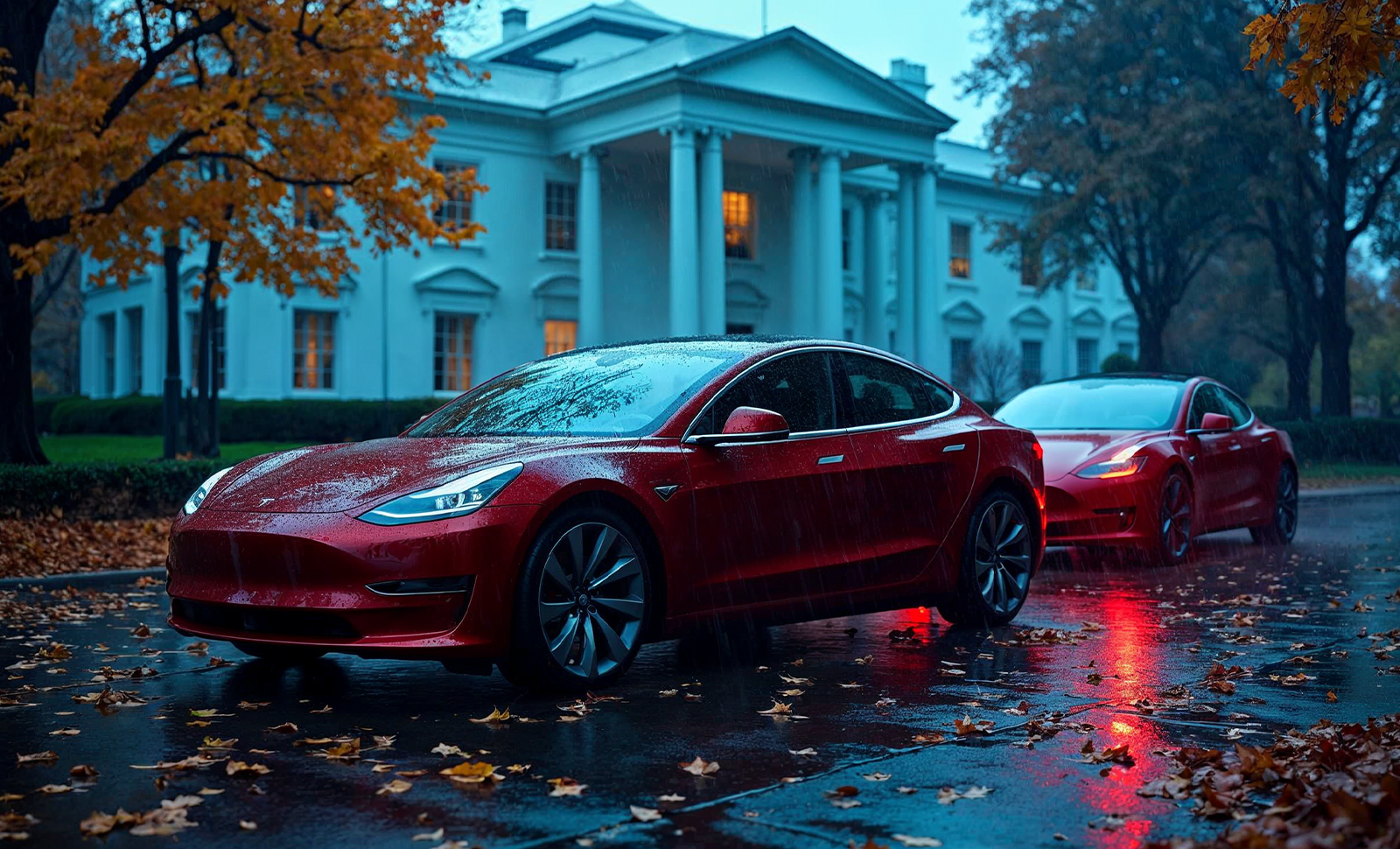Elon Musk, the world’s wealthiest man, is using the White House as his personal Tesla showroom. Recent events have spotlighted Elon Musk’s growing influence within the White House, raising ethical questions about the intersection of private enterprise and public policy. This strange juxtaposition of self-promotion and policy influence has sparked heated debates about ethics in government, corporate power, and the consequences for ordinary Americans. How did a tech billionaire manage to intertwine his business interests with the highest levels of government, and what does it mean?
The White House as a Tesla Showroom
The South Lawn of the White House was transformed into a showcase for Tesla vehicles, with President Donald Trump personally endorsing the brand. On March 11, 2025, President Trump publicly endorsed Tesla by selecting a red Model S on the White House driveway, effectively turning the nation’s most iconic residence into a promotional platform for Musk’s electric automaker. This unprecedented move has drawn criticism from various quarters, with concerns about the ethical implications of using public property for private enterprise promotion. Critics argue that this blurs the lines between government responsibilities and private business interests, potentially setting a concerning precedent.
While Musk enjoys the benefits of White House endorsement, he simultaneously pushes for policies that would disproportionately affect low-income Americans. His advocacy for cutting Social Security—an essential safety net for millions—stands in stark contrast to the privileges he enjoys as one of the world’s richest individuals. This raises fundamental questions about fairness: why should a billionaire receive public promotion while advocating to strip essential benefits from those who need them the most?
Musk’s Assertions on Social Security Fraud
Elon Musk has recently claimed that Social Security and other federal benefit programs are rife with fraud, suggesting that eliminating such waste could save between $500 billion to $700 billion annually. He described Social Security as “the biggest Ponzi scheme of all time,” asserting that millions of deceased individuals are still listed as beneficiaries. However, these claims have been met with skepticism. The Social Security Administration’s acting commissioner refuted Musk’s allegations, stating that there is no evidence to support the notion that millions of deceased individuals are receiving benefits.
Impact on Vulnerable Populations
Musk’s proposals to cut entitlement programs, including Social Security, have raised alarms about the potential consequences for vulnerable populations. Social Security serves as a critical safety net for millions of Americans, particularly the elderly and disabled. Significant cuts to these programs could exacerbate poverty and increase economic inequality. Critics argue that targeting these programs under the guise of eliminating fraud could harm those who rely on them the most, without addressing the underlying issues effectively.
A Final Note
The intertwining of Musk’s business interests with public policy has led to ethical concerns regarding potential conflicts of interest. The use of the White House for a Tesla promotional event, coupled with Musk’s influence on federal policy decisions, has been perceived by some as an overreach of corporate power into government affairs. This perception risks eroding public trust in the impartiality of governmental institutions and their commitment to serving the public interest over private interests.














